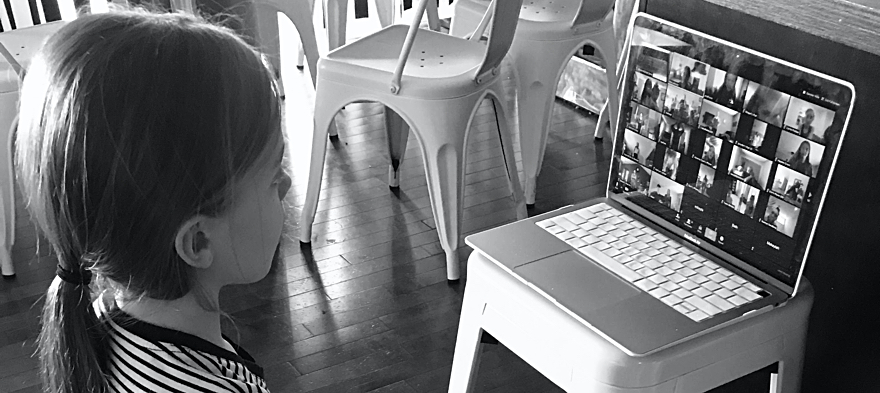
Sep 1, 2020 12:00:00 AM
by Tate Aldrich
Have you ever revisited your philosophy of teaching? I don’t mean the progressive policies you ardently advocate for at faculty meetings or on Facebook; I mean that one-page declaration you typed as an undergraduate student, attached to your resume and submitted to your future employer.
Revising or rewriting your philosophy of teaching is a sound, reflective professional practice. I revisited mine in 2018 when the moral injury caused by my students’ collective trauma overwhelmed and debilitated me. I penned for myself my “Dignity Pedagogy,” a personal manifesto that prioritized the restoration, reclamation, and/or preservation of students’ dignity above everything else—even our learning objectives.
Here’s an excerpt:
Human dignity, as a belief worth preserving, is often something my students have never attributed, unalienably, to themselves. Their bodies, their minds, and their private spaces have never been described for them as especially theirs. Their dignity has been too often at the mercy of authoritarian adults, oppressive institutions and outmoded traditions…
[pullquote]This new philosophy served as a promise to myself as a professional and marked the next phase in my evolution as a trauma-informed, equity-invested educator.[/pullquote]
COVID-19 has gut-checked all teachers by demanding we move resiliently through an uncharted educational landscape amid social media’s scorn and its institutional distrust. Ask yourself:
It’s vital, now, that we recognize this new technological horizon—particularly, as it pertains to Zoom—in real, spatial terms. Think of it this way: [pullquote position="right"]We teachers are now guests in our students’ homes[/pullquote]—or more accurately understood, we teachers are guests sitting at the opened front door of our students’ homes. And from over their shoulders, we’re afforded a tiny view of their private lives: A kitchen table, a coatrack, the wall behind the couch. And each of these threshold-views is stacked, arbitrarily and comparatively, upon another’s.
This visualization of an online class proves its difference in dynamics. Have you noticed yet that sensitivities seem heightened in a Zoom setting? The fear of “cold calling” is somehow more palpable; an eye roll or sigh, somehow, more defeating. When both students’ and teachers’ entire selves are reduced to a Zoomed-in, blurry shot of their faces, unexpected visits from house pets, and regrettably messy bedrooms, it’s no wonder we all feel more vulnerable and exhausted.
[pullquote]One way to allay those insecurities is to ensure students that preserving their dignity during these unprecedented times is your first priority.[/pullquote] Here’s what I told my students on the first day of our class this year:
I am a guest in each of your homes, and I thank you for having me. Your comfort, your privacy, and—most importantly—your dignity are my primary concerns. If there’s ever a time you feel our class has violated the sanctity of your space, feel free to let me know. Preserving your sense of dignity supersedes everything else—as it always should.
And it’s not a one-off. The language of my “Dignity Pedagogy” permeates my classroom procedures, my instructional strategies, and my assignments. I make sure students hear the word “dignity” over and over again.
Here are some tips to help you prioritize your students’ dignity during your Zoom classes:
[pullquote]Digital learning spaces have the potential to turn teaching inside-out.[/pullquote] Before the pandemic, teachers moved about a physical space. They wondered, they whispered, they sang—all in an effort to evoke each student’s unique perspective and individual story. And even then, that newly imagined “whole child” was only an assembling of approximate parts—each susceptible to bias and misinterpretation.
Now, many teachers don’t move about a physical space. Instead, the pandemic has transformed our classroom into simultaneous home visits. Do we have the sensitivity and responsiveness to engage all children? Do we have the mental agility and professional humility to make learning relevant in these varied—and too real—contexts?
Perhaps, it’s time you revisited your philosophy of teaching, too. After all, it should tell students, parents and administrators all they need to know about you as an educator. Consider this prophetic, Zoom-like imagery from mine: “Society is built to keep us in boxes, but I want to show my students how to break free.”
Tate Henderson Aldrich is an educator, writer and advocate. He is the 2017 New Hampshire Teacher of the Year and a National Council of Teachers of English author. This includes the publication of his facilitation method, “The Context/License/Privilege Protocol: Students’ Identities and Relevant Conversations”—a dialogic tool that promotes equitable classroom discussions. Currently, Tate works at the University of Arkansas. Tate’s passions include promoting trauma-informed instructional practices and advocating for children’s rights.
Few issues in education spark more tension and debate than standardized testing. Are they a tool for equity or a burden on students? A necessary check on school systems or a flawed measure of...
Charter schools are public schools with a purpose. Operating independently from traditional school districts, they're tuition-free, open to all students, and publicly funded—but with more flexibility...
Despite the benefits of a diverse teaching force, prospective teachers of color fall out of our leaky preparation pipeline at every stage: preparation, hiring, induction, and retention. Here’s what...
Ed Post is the flagship website platform of brightbeam, a 501(c3) network of education activists and influencers demanding a better education and a brighter future for every child.
© 2020-2025 brightbeam. All rights reserved.
Leave a Comment